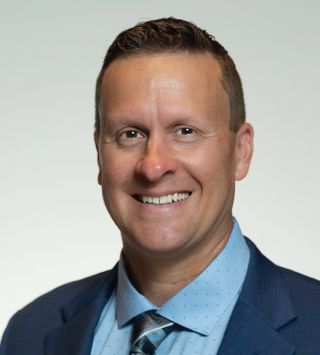David Lampert
- Associate Professor of Civil and Environmental Engineering
Education
Ph.D. Civil Engineering, The University of Texas at Austin, 2010
M.S.E. Environmental and Water Resources Engineering, The University of Texas at Austin, 2003
B.S. Civil Engineering, Oklahoma State University, 2001
Research Interests
Dr. David Lampert's research focuses on applications of new technologies to improve the sustainability of food, energy, and water resources and enhance water quality. His major research areas include:
- Wastewater treatment and reuse
- Assessment and remediation of contaminated sites
- Water quality modeling and monitoring
- Computing technology applications for water systems
- Life cycle assessments of food, energy, and water provision
Professional Affiliations & Memberships
American Geophysical Union
Universities Council on Water Resources
American Water Resources Association
Water Environment Federation
Dr. Lampert previously served on the Governor of Oklahoma’s Produced Water Working Group, which is tasked with identifying alternative beneficial uses for oil and gas wastewater.
Awards
Universities Council on Water Resources, 2020 Early Career Award for Applied Research
Oklahoma State University, President’s Cup for Creative Interdisciplinarity, 2019, 3rd Place Award
Pacesetter Award, Argonne National Laboratory, 2014
Featured Paper, Environmental Science: Processes & Impacts, Volume 15, Issue 3, 2013
Projects
2020-2022: Applying unmanned systems for water quality monitoring. U.S. Department of the Interior, Bureau of Reclamation.
2020-2022: Produced water treatment fueled by high value product extraction. Oklahoma Center for the Advancement of Science and Technology.
2019-2021: Decreasing the energy use in wastewater treatment. U.S. Environmental Protection Agency.
2019-2020: Contraire: Wastewater Treatment Plant Testing & Aeration Control Services. National Collegiate Inventors and Innovators Alliance.
2019: Development of pay item categories and special provisions for erosion and sediment control devices to be used by ODOT, Oklahoma Department of Transportation.
2018-2020: Aeration process controls to reduce energy costs in wastewater treatment plants, Oklahoma Center for the Advancement of Science and Technology.
2018-2019: Applying passive samplers to assess perfluoroalkylated substances in soils and sediments. U.S. Environmental Protection Agency.
2018-2019: Engineering biocatalysts consortium for efficient conversion of lignocellulosic biomass and greenhouse gas mixture to fuels and chemicals. U.S. Department of Agriculture, National Institute of Food and Agriculture.
2012-2014: Water quality assessment of pesticide usage for biofuel production. U.S. Department of Energy, Office of Energy Efficiency and Renewable Energy.
Expertise
Pollutant fate and transport modeling, water quality modeling, wastewater treatment technologies, contaminated site remediation technologies, Python programming, life cycle assessment.


